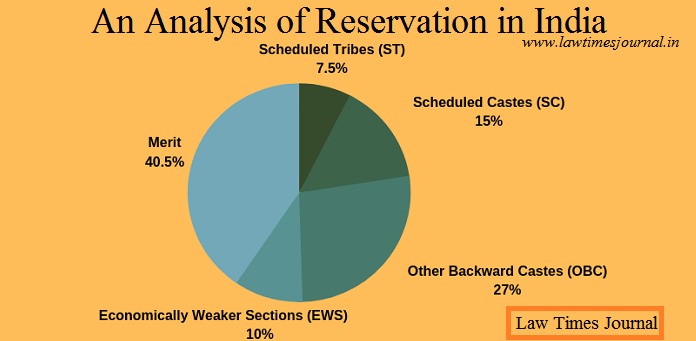Seventy-eight years of Independence, and here we are: still begging, bargaining, and brawling over caste-based reservations. You’d think after nearly eight decades, the nation would have moved from “upliftment” to empowerment. But no—the Congress, that grand old party of grander old ideas, is now flirting with the idea of 42% reservation for Backward Communities alone. Why stop there? Let’s just reserve 100%—for everyone. That way, no one gets left out and merit can finally be declared extinct with full constitutional backing.
Let’s rewind a bit. The framers of our Constitution, led by the brilliant Dr. B.R. Ambedkar—himself a Dalit—envisioned reservations as a temporary corrective measure. The keyword, of course, being “temporary.” Not permanent. Not eternal. Not a hereditary privilege passed down like a family heirloom. And certainly not a political weapon to be dangled before every election.
But Congress, with its six-decade stranglehold on India’s post-Independence history, made sure that “temporary” turned into “perpetual.” They kept renewing quotas like a Netflix subscription—except with worse content and longer-lasting damage. Any attempt to question the logic or longevity of reservations has been instantly labelled anti-Dalit, anti-backward, anti-social justice. In short: political suicide.
The Modi government, in contrast, claims to have lifted 60-70% of the underprivileged out of poverty. Great! So, if so many have been “uplifted,” why hasn’t the policy evolved? Why cling to caste when economic status, skill gaps, and educational opportunity are clearly the more rational metrics in today’s India? The answer is simple: votes.
Even Narendra Modi, who boasts of turning India into a manufacturing hub, a digital power, and a military force to reckon with, won’t touch the reservation hot potato. Not even to say, “Let’s link it to income now.” Because caste politics, unfortunately, still trumps common sense.

Let’s not kid ourselves. Today, SCs, STs, and OBCs are doctors, engineers, IAS officers, and CEOs. They’re competing—and winning—on merit. Kanshi Ram himself once admitted that his community no longer needed reservations. But then, political convenience bulldozed social evolution.
If sections of SC and ST communities still remain backward and underprivileged, the blame lies partly within. Many among the elite within these groups ensured that the benefits of reservation stayed within their own families, passing them down to their children while ignoring the rest of the community.
Even India Today, a reputed national magazine, once exposed how SC/ST IAS and IPS officers helped only their kin, not their wider community.
And now comes the Congress, trying to take credit for Modi’s caste survey as if they’ve rediscovered the Vedas. What next? DNA tests to prove historical oppression? We’ve become a society obsessed with caste certificates while claiming to fight casteism.
Is identifying people by caste wrong? No. But pretending that caste still dictates every Indian’s destiny? That’s dishonest. Walk into any metro city and ask today’s youth which caste their friends or partners belong to. Many won’t know—and more won’t care. Inter-caste marriages, friendships, professional collaborations—these are the real India stories. But facts don’t fetch votes. Divisions do.
And speaking of caste and religion, what caste do the Nehru-Gandhis belong to? If Nehru was a Hindu “by accident” (with strong whispers of Muslim lineage), his daughter Indira married a Parsi, took the Gandhi name for political theatre, and produced Rajiv, who married an Italian Catholic. Their daughter, Priyanka, married into a family with Christian roots—Robert Vadra, born to a Catholic mother. But don’t worry, the Gandhi surname remains intact, recycled for one and all, from Oxford to Wayanad.
Meanwhile, Rahul Gandhi, who insists he’s a bachelor for public consumption, has enough whispers around him to make a Netflix docuseries. Perhaps the Congress manifesto for 2029 will include a reservation quota for ambiguous relationship statuses?
But to be fair, inter-faith marriages aren’t the domain of fake Gandhis alone. Even a firebrand Hindutva voice like Subramanian Swamy has a Muslim son-in-law. The elite may marry across caste and creed, but for the masses, the same leaders sell caste quotas like election-time freebies. Hypocrisy, anyone?
Here’s a radical idea: instead of expanding reservations, how about shrinking the need for them? Promote inter-caste marriages. Incentivize merit. Focus on economic upliftment. Build a Bharat where a poor Brahmin and a poor Dalit can access the same benefits—because both are poor, not because one has a certificate.
But God forbid we actually solve caste problems. What would our politicians campaign on then?




